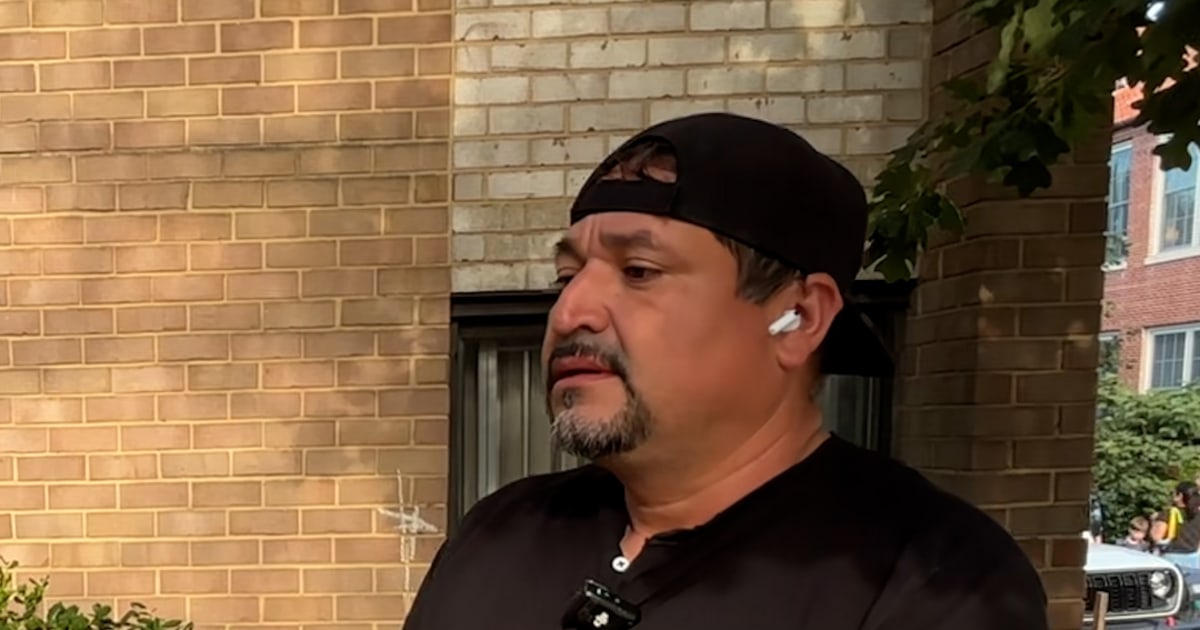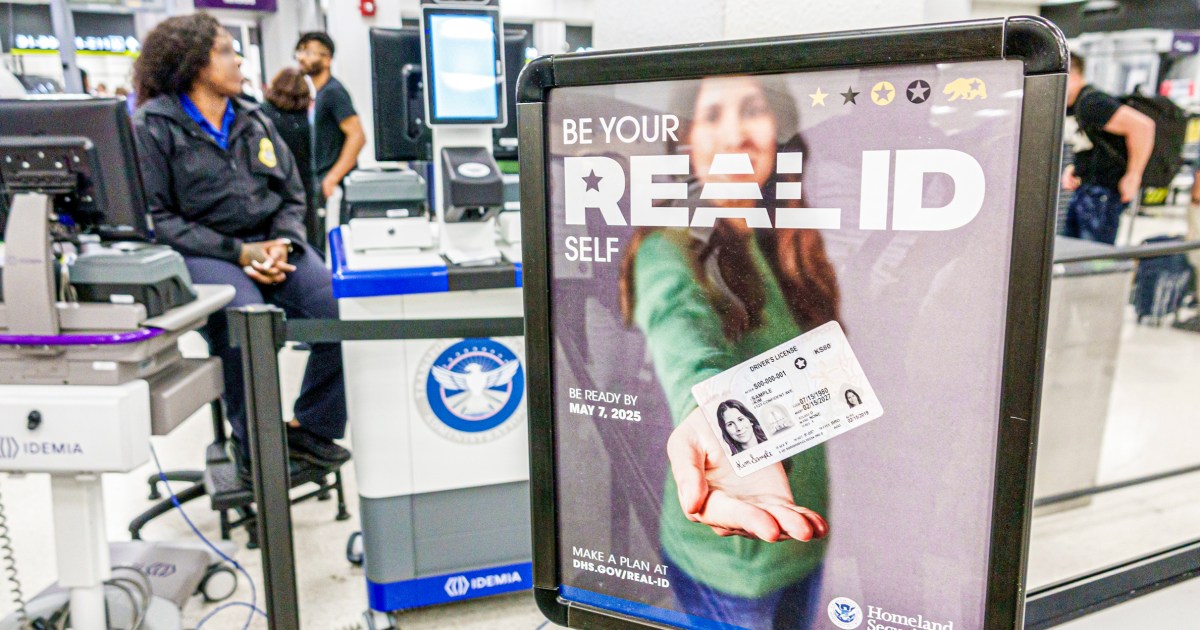A Maine resort town is challenging the Trump administration’s criticism of its police department after a seasonal reserve officer was arrested by Immigration and Customs Enforcement last week. The incident is putting renewed focus on the accuracy of E-Verify, the system the federal government created for employers to check if prospective employees have legal authorization to work in the United States.
Federal immigration officials have asserted that the Old Orchard Beach Police Department either “knowingly” hired an unauthorized immigrant as a reserve officer or did not do enough independent verification of the man’s status. The department has said it thoroughly checked the background of Jon-Luke Evans, and he was approved to work there as an officer in May through the Department of Homeland Security’s E-Verify Program.
ICE said it arrested Evans, a Jamaican citizen, last Friday after he unlawfully attempted to buy a firearm, triggering an alert with the Bureau of Alcohol, Tobacco, Firearms and Explosives, which worked with ICE to make the arrest. ICE said that Evans overstayed a visa that required him to leave in October 2023. But the town’s police department said E-verify cleared Evans’ work eligibility until March of 2030.
“The Old Orchard Beach Police Department follows all of the pre-employment guidelines expected of an employer in the State of Maine and in the U.S., and we are providing this additional information in response to statements made by certain federal agencies that only work to undermine public trust and confidence in municipal law enforcement,” the town’s manager, Diana Asanza, said in a joint statement with the police department on Wednesday evening.
“Today, the Department of Homeland Security doubled down on its attack, but in doing so has thrown its own electronic verification system into question. If we should not trust the word of the federal computer system that verifies documents and employment eligibility, what good is that system?” Asanza said.

The joint statement came after DHS said earlier Wednesday that using E-Verify “does not absolve employers of their legal duty to verify documentation authenticity, and all employers should take necessary steps to effectively verify legal employment status.”
“The Old Orchard Beach Police Department’s reckless reliance on E-Verify to justify arming an illegal alien, Jon Luke Evans, violates federal law, and does not absolve them of their failure to conduct basic background checks to verify legal status,” DHS Assistant Secretary Tricia McLaughlin said in the statement.
McLaughlin also defended the E-Verify system, saying it “is a proven, no-cost tool that delivers high accuracy in verifying work authorization by cross-checking employee documents against government databases to combat rampant document fraud and protecting American workers.”
E-Verify is operated by the Department of Homeland Security in partnership with the Social Security Administration.
After McLaughlin issued the DHS statement, Old Orchard Beach released a statement of its own detailing the steps it took to verify Evans’ immigration status and eligibility to work.
The town said that before the police department hired Evans, it compiled a 153-page personnel file on him that included background checks, driving records, copies of identification cards, education and medical records, and personal references.
Evans provided required information including an I-9 federal immigration and work authorization form, as well as his Jamaican birth certificate, Massachusetts driver’s license, U.S. social security card, work authorization card, among other documents, according to the statement.
“The Old Orchard Beach Police Department thoroughly checked Mr. Evans’ background and verified that all information and documentation he provided was accurate. The depth of his personnel file shows the diligence the Town takes in hiring,” Police Chief Elise Chard said.
It said it then submitted Evans’ forms to DHS’ E-Verify program, and in May the federal agency verified Evans’ status and said he was authorized to work legally through March 19, 2030.
“Evans would not have been permitted to begin work in Old Orchard Beach without DHS verifying his status. The federal government has aggressively pushed all employers — government and private — to rely on E-Verify in the hiring process,” the town and police department said.
“Simply stated, had the federal government flagged his information the Town would not have hired Mr. Evans,” Chard said. “Any insinuation that the Town and Department were derelict in our efforts to verify Mr. Evans’ eligibility to work for the Town is false and appears to be an attempt to shift the blame onto a hard-working local law enforcement agency that has done its job.”
The policed released 54 pages of his personnel file, which NBC News has reviewed, showing records related to his police department application process, which state that employment is conditional upon a background check, the submission of mandatory paperwork, drug screening and mandatory training sessions. The records also show Evans was required to provide two valid forms of ID for payroll processing and that he passed all of his training sessions before he was approved to work as a reserve officer. The documents also include Evans’ résumé and educational records.
DHS did not respond to requests for comment on the Old Orchard Beach town and police department statement. It also did not share what steps and methods, beyond E-Verify, it suggests local police departments and other employers use to independently verify an immigrant applicant’s legal status and work authorization.
ICE had accused the police department of “knowingly breaking the law” and hiring an immigrant in the country illegally. The police department denied the claim, saying the federal government’s own system had approved the man to work as a reserve officer.
Rep. Lori K. Gramlich, a Democrat who represents Old Orchard Beach in the state’s House of Representatives, said in a statement to NBC News on Thursday that in light of the conflicting accounts, she was calling for a thorough federal review of E-Verify and DHS’ authorization process “that allowed Officer Evans to begin work in good faith in May 2025.
“This incident highlights the importance and necessity of reliable federal systems to support the lawful employment of noncitizen residents in community-serving roles,” she said. “We must do better to prevent such situations in the future, protect community trust and ensure fairness and accountability.”
Maine is one of about a dozen states that allow noncitizens to work in law enforcement. Some require the immigrant to be a green-card holder, while others, such as Maine, require the immigrant to be legally authorized to work in the U.S.
The town has said that its police department, like many in coastal communities, uses a seasonal supplementary workforce when the population surges in the summer months.
Maine has some 34,000 immigrant workers, or 4.6% of the state’s labor force, according to the American Immigration Council. There are also an estimated 5,800 unauthorized immigrants of working age in the state, according to the council.








